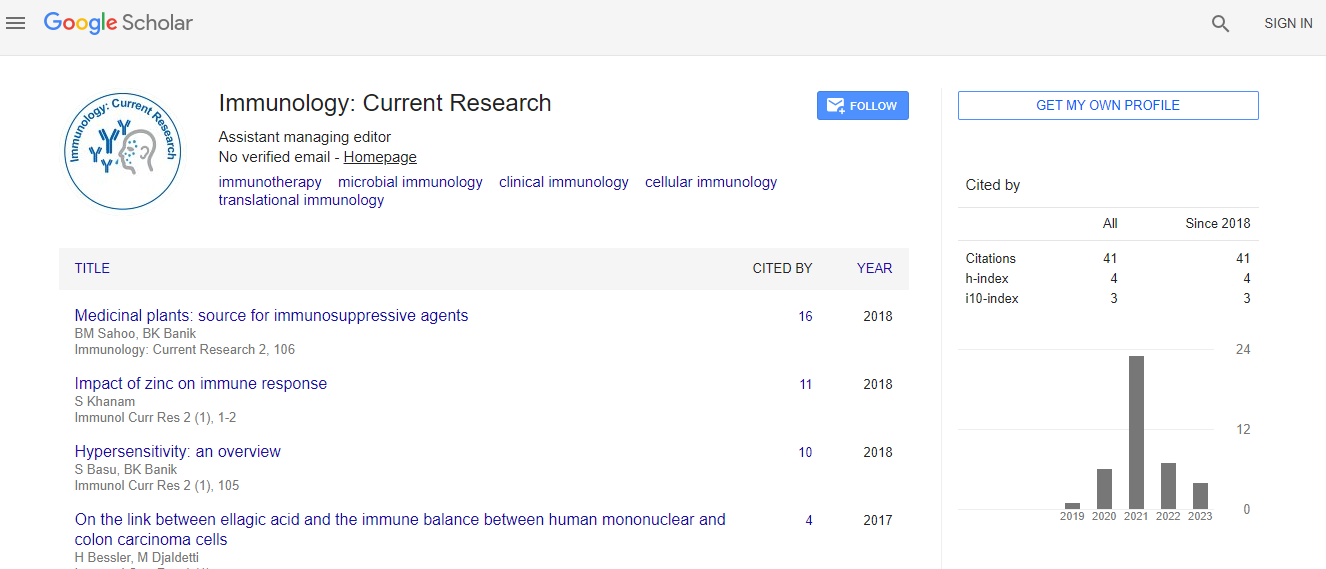Innovations in Immunotherapy: Novel Approaches to Enhancing Immune System Function in Cancer Treatment
*Corresponding Author:Received Date: Jan 01, 2025 / Accepted Date: Jan 31, 2025 / Published Date: Jan 31, 2025
Citation: Wilson O (2025) Innovations in Immunotherapy: Novel Approaches toEnhancing Immune System Function in Cancer Treatment. Immunol Curr Res, 9:240.DOI: 10.4172/icr.1000240
Copyright: © 2025 Wilson O. This is an open-access article distributed under theterms of the Creative Commons Attribution License, which permits unrestricteduse, distribution, and reproduction in any medium, provided the original author andsource are credited.
Abstract
Immunotherapy has revolutionized cancer treatment by harnessing the immune system's natural ability to fight
tumors. Recent innovations in immunotherapy have led to the development of novel approaches designed to enhance
immune system function and improve patient outcomes. These include immune checkpoint inhibitors, CAR-T (chimeric
antigen receptor T-cell) therapy, cancer vaccines, oncolytic virus therapies, and adoptive cell therapies. Immune
checkpoint inhibitors, such as PD-1/PD-L1 and CTLA-4 blockers, have shown remarkable success in treating cancers
like melanoma and non-small cell lung cancer. CAR-T therapy, involving the genetic modification of a patient’s T-cells
to target cancer-specific antigens, has demonstrated significant efficacy in hematologic malignancies. Additionally,
cancer vaccines aim to stimulate the immune system to recognize and attack cancer cells, while oncolytic viruses
selectively infect and destroy tumor cells. These therapies are complemented by strategies such as immune system
modulation and combination therapies. Despite promising results, challenges such as immune-related adverse
effects, tumor resistance, and limited applicability remain. This review explores these innovative approaches and their
implications for the future of cancer immunotherapy.

 Spanish
Spanish  Chinese
Chinese  Russian
Russian  German
German  French
French  Japanese
Japanese  Portuguese
Portuguese  Hindi
Hindi 
